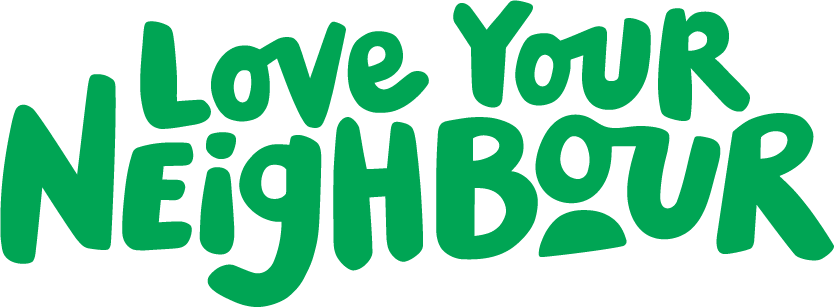Social supermarkets – the growing demand
As the needs of communities change, some Love Your Neighbour Hubs and Churches are having to adapt. Read more about some of the ways social supermarkets are filling a desperately needed gap in people’s lives during the cost-of-living crisis.
What is a social supermarket?
A social supermarket is a shop which sells discounted products to those on a low income. Unlike a foodbank, there’s a charge for products, and the items aren’t pre-packaged. This is becoming an increasingly popular choice – but also, a growing necessity for many people in the UK with the rising cost of living.
Food is donated by supermarket chains and is sold to those identified as being in need – usually by local schools. Low-income individuals and families are then able to shop for products, including food and toiletries, at a discounted rate.
Growing needs
The needs of communities are changing. During lockdown, foodbanks emerged in response to unemployment, food poverty, and social isolation.
Of course, foodbanks serve a vital purpose. When circumstances leave you in desperate need, donated food is a lifeline. But social supermarkets are popping up around the country as a proactive safeguard against worsening financial circumstances, while allowing shoppers to still feel a sense of independence. To some, foodbanks can feel like a handout. Some might avoid using them until they absolutely need to, fearing embarrassment or a removal of their financial agency and dignity. Social supermarkets, however, allow those in need to shop for products and access a range of helpful services.
According to Action Against Hunger, 2.5 million children in the UK experienced food poverty between August 2021 and January 2022. The ethos of the social supermarket is that being in need shouldn’t disqualify you from choice. Between dietary requirements and the stringent eligibility process to access them, foodbanks aren’t for everyone. Social supermarkets are enabling people on a low income to keep their financial independence while spending less.
Meeting the needs
‘It’s more than a transaction. It’s more than a shop.’
– Laurienne, Liverpool Community Grocery Manager
With inflation and a relentless cost-of-living crisis, more people across the UK are needing extra help to make ends meet. Sometimes, no matter how hard you try, the numbers just don’t add up.
Hillsong Liverpool, one of the Hubs supported by Love Your Neighbour, has moved from a foodbank to a social supermarket model. Responding to the increasing numbers of people who needed help but fell outside the criteria to use a foodbank, Hillsong Liverpool and the Message Trust opened Liverpool Community Grocery.
The story so far
Fiona, the Love Your Neighbour Lead at Hillsong Liverpool, told us the different approach that their social supermarket model is taking compared to the foodbank. She said: ‘Before, we were delivering food to people. This is now a chance to invite the community into a space.’
Hillsong Liverpool identified the needs of their community and how they’d changed in the aftermath of lockdowns. Even as people got back into work, the UK was thrown into the midst of a cost-of living crisis. Suddenly, the need became greater. Fiona told us: ‘As people started to get back into work, we saw the need for food provision with the cost-of-living crisis for people that were working and not working.’
But there’s much more than just fruit and veg on offer to the people of Liverpool. Hillsong Liverpool have also worked to provide services for money management and even cooking classes.
‘Our heart was hoping for a busy space – downstairs bustling with people and upstairs filled with people doing courses. Hopefully, we wouldn’t need it in the long run. But we want to be here to provide that wrap-around care when it’s needed.’
– Fiona, Love Your Neighbour Lead at Hillsong Liverpool
Hillsong Liverpool are continuing to be a pillar of the community. Welcoming all, from students to low-income families, they’ve opened their doors to a huge window of people that might struggle to afford a weekly shop, but who wouldn’t meet the criteria for benefits.
‘We wanted to enable people to still have a nice, dignified shopping experience without feeling embarrassed. People are shocked by the environment and the lovely atmosphere.’
– Fiona, Love Your Neighbour Lead at Hillsong Liverpool
It’s not just tinned beans filling the shelves. It’s fresh food, independence, and community.
For many, social supermarkets are one of the last options they have to keep their heads above water, while still living with agency and dignity. We’re excited to see Love Your Neighbour Churches and Hubs across the UK adapt their services to the needs of their communities, and social supermarket staff are working tirelessly to meet the needs of those that come through the doors. Love Your Neighbour Churches and Hubs operate thanks to the generosity of our supporters. Click here to donate or find out more about what Love Your Neighbour is doing near you.




